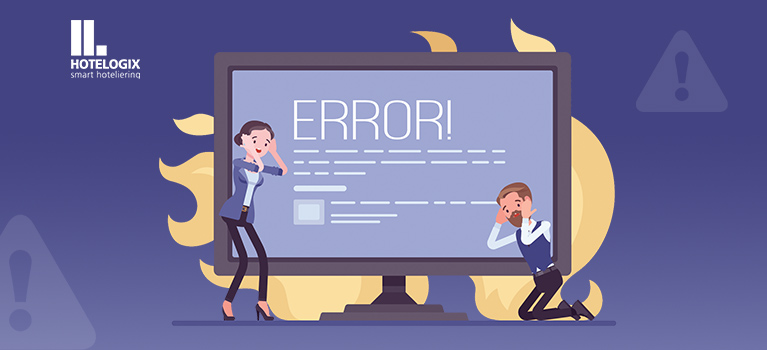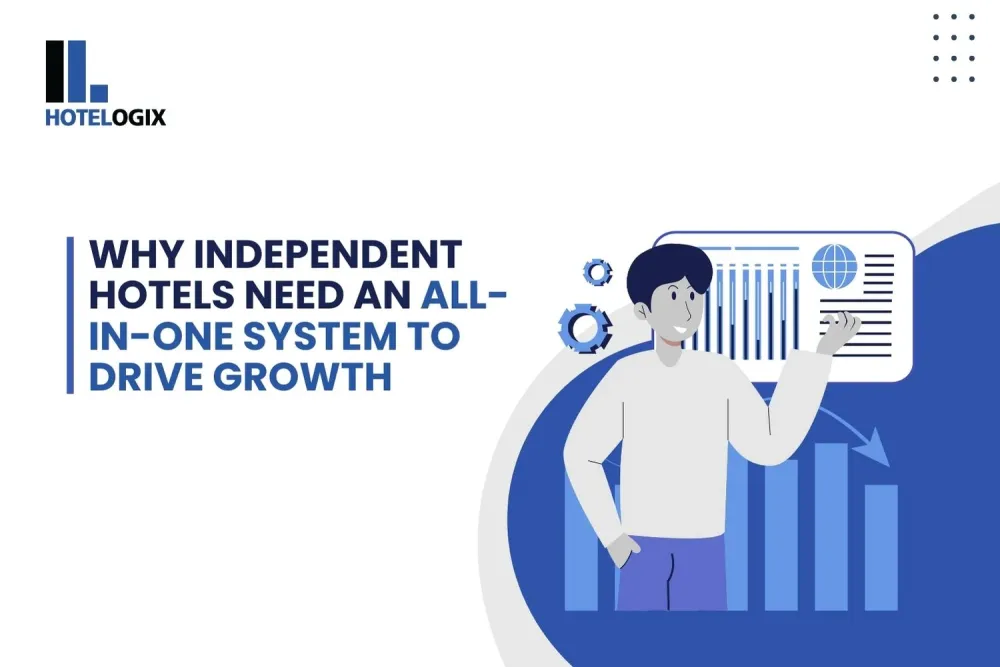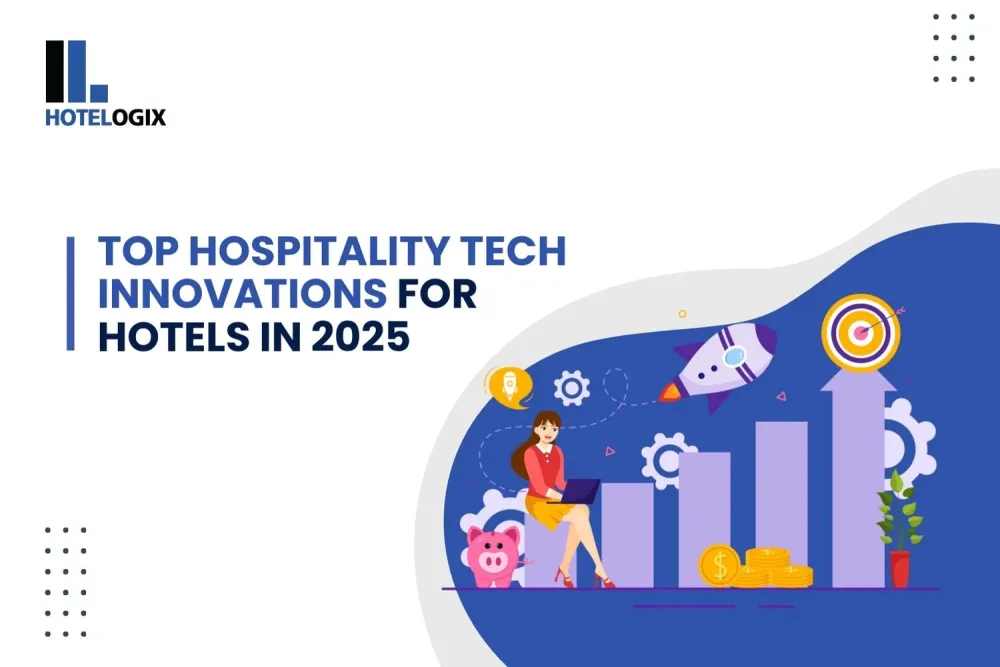A hotel property management system (Hotel PMS) is a software application that helps you streamline and automate operations. This is the most basic functionality of both legacy software or on-premises Hotel PMS and cloud-based hotel management software. But do you know that your hotel processes and business are at severe risk if you are still running your hotel operations with a legacy software? You may say that you have been using it for the last 25 years, why adopt a new one now? Here is the answer – 25 years ago, those legacy applications were in vogue. However, their time has passed now, and they have become obsolete. Not convinced? Why don’t you look at some of the leading international hotel groups?
This copy will assist you in understanding some of the pitfalls of running multi-property operations with a server-based or legacy software.
It eats into your profits.
Software of any sort should be an enabler, and a legacy software was once known for this capability. However, in this era of rapid digitization, it has lost its sheen. For example, if you have five properties in your group and you are still working on a legacy version, you will have five expensive servers to maintain. Plus, you need to invest in having a dedicated IT team at each location for their maintenance, which is again a costly affair. Do you think this is a good idea in today’s business environment when everybody else is focusing on cutting down on operational costs?
However, with an enterprise-grade cloud-based Hotel PMS, you don’t need to worry about all the issues mentioned above as the maintenance of the application is on the Hotel PMS vendor. Today’s cloud Hotel PMS is built on stable architecture and offers 99.9% application uptime to ensure your business is up and running all the time. You don’t even have to worry about data security. Not only this, being on the cloud, it is accessible via the web. This means you can access the Hotel PMS on any hand-held devices and keep an eye on your operations on the go.
It restricts your multi-property management capabilities.
Having centralized control over multi-property operations is a must-have capability. But you won’t experience the power of this with a legacy software. You must have enough human resources to work on the server-based Hotel PMS at each property, and as an owner, you need to coordinate with your staff to monitor all your properties. Doesn’t it sound like an outdated way of running a hotel in 2021?
How about a Hotel PMS that allows you to monitor multi-property operations with a single sign-on? This is precisely what a cloud Hotel PMS does for you. It allows you to manage room bookings for member hotels with a CRO, gain centralized access to guest history and group-wide business-critical reports to make informed decisions. Moreover, it enables you to manage TA and corporate profiles centrally. Managing rates across your connected offline and online sales channels also becomes quicker and easier.
It doesn’t help you sell more rooms.
Look at your room sales via all your connected channels and look at your competitor’s same data that uses a cloud-based solution. You will understand the point that we are trying to make here. In today’s world of online travel, you need to sell more rooms via online sales channels, and your Hotel PMS should help you with that. But you won’t realize this benefit when your operation depends on a legacy application as it can’t integrate well with today’s cloud-based channel management solution. As a result, you will struggle to update rates and availability on OTAs in real-time, leading to confusion around availability, which will again lead to double bookings and overbookings. In total, you can’t strengthen your hotel brand’s online visibility.
Now, let’s see how a cloud hotel software works in this context. It seamlessly integrates with a channel management software to ensure that your rates and availability are updated across OTAs, metasearch engines, and your brand website in real-time. This means, if you have ten rooms up for sale in property A, the same will reflect on all the channels. Plus, you don’t have to log into each channel’s extranet to change/update room rates. While this saves time and reduces errors, it boosts your online presence. And this is exactly what you want when an increasing number of travelers are booking their accommodation online. And ofcourse,, when there is clarity on the number of available rooms, you don’t have to worry about double bookings and overbookings, leading to lost business opportunities and guest dissatisfaction.
It doesn’t allow a 360-degree hotel operation.
As a hotelier with multiple properties in a group, you need to ensure 360-degree operations across all your member properties – right from automating daily processes to selling more rooms, increasing online reputation, and managing revenues. This happens when your existing Hotel PMS gets integrated with a host of other operationally critical third-party hospitality technology solutions. However, this could be a challenge for you when you have a legacy software as it will not integrate seamlessly with today’s third-party solutions that are on the cloud. Even if the integration happens, it will be forced, leading to glitches as the on-premises application will not talk to those cloud-based solutions in real-time.
So, what is the way out? The answer is – a cloud-based Hotel PMS. It can seamlessly integrate with third-party solutions like channel management, revenue management, online reputation, web booking engine, business intelligence, etc. We already know the benefits of having a cloud Hotel PMS and channel management solution. While the revenue management solution can help you optimize your room rates based on market demand and competitor pricing, the online reputation management solution enhances your brand’s online reputation and ratings. You can generate more direct bookings via your website and social media pages with a web booking engine. The business intelligence application lets you access critical KPIs.
The final word
Technology evolves, keeping in mind the hotel business environment and travelers’ preferences. This has made the good old legacy software quite obsolete. It no longer can support your growth because it doesn’t understand your requirements. And when the market is so fiercely competitive, your reliance on an antiquated on-premises Hotel PMS will only lead to operational bottlenecks that are not easy to handle. Today’s leading international hotel groups were ahead of time to understand these hazards 10-15 years ago when they migrated their operations to the cloud. And now look at them. They have seen instant ROI with improved automation, performance, occupancy, and revenue. What about you? When will you get your hotel what it wants the most?





